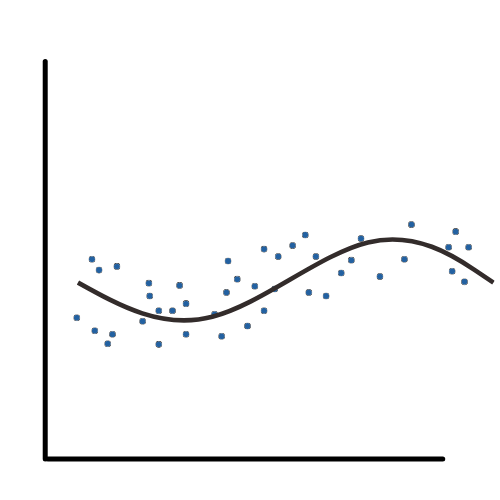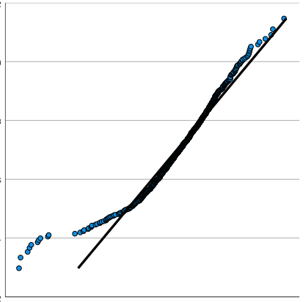how our programs
make the process work.

statistically speaking
membership
program
Statistically Speaking Membership is your foundation for statistical skill building and the support of a team of statistical mentors. This program takes you all the way from Clarity to Application through trainings, resources, and regular access to statistical consultants, who are available to answer your questions and get you unstuck.

the craft of statistical analysis
This free webinar series gets your skill-building started. Get intuitive understanding of a statistical topic that has stymied you for years. Or be introduced to a helpful method you’ve never heard of. Or one you keep hearing about, but don’t know where to start to learn it.
how our programs
are different.

You get unrivaled learning support.
We know learning statistics is hard. Even harder is knowing how to apply what you’ve learned to your real, messy data. With us, you’re not learning a lot of new info then left to figure out how to apply it on your own.
You’ll get guidance as you make decisions in your analysis. You’ll have many opportunities in every program to ask.

You get high quality teaching, approachable learning.
Our programs work together to meet you where you are. Every one is designed with care to make learning difficult statistics as easy as possible.
Have embarrassing statistics questions? That’s great. You’re in the right place. We’re here to help you, not judge you. We believe you’ll learn the most if you’re not afraid to ask the most basic question.
So please ask. We’re happy to answer.

Integrated, comprehensive statistical skills for practical application.
Sometimes you need a comprehensive deep dive into a new statistical topic. You can get that here.
More often, you need the kind of ongoing skill-building that fills in the holes of your understanding. You know, those concepts that didn’t quite make sense when you took that stats class years ago. Or the intuitive explanations of how statistics work that make decisions clear.
Or the practical problem-solving and troubleshooting that help you deal with a messy data set or the quick short cut you didn’t know existed.
 what people
what people
are saying 
I’m a scientist at a federal lab where we don’t have a statistical consulting group, so just knowing you were there was huge for me!
 what people
what people
are saying 
Just wanted to thank you for your help in the webinar last month. I had some questions about mean reversion – I seemed to understand it less the more I thought about it. Anyway, we talked it through in the webinar, and it greatly helped my understanding of the topic.
 what people
what people
are saying 
Yesterday I attended the webinar on GLMM, really nice presentation by Kim. As a statistician, I find it good to see how complicated stuff is presented by others, both in order to learn myself and to learn how to present statistics to non-statisticians.
 what people
what people
are saying 
Thank you for this answer! It has saved me from many more hours of fruitlessly searching for something I wasn’t even sure how to search for! 😛 I will look into those resources and may consider the bootstrapping method and training after reading more about it.
 what people
what people
are saying 
I am so glad the Analysis Factor exists. I honestly don’t know how I would get answers to my statistical questions without the program. And it’s always a pleasure to work with all of you.
 what people
what people
are saying 
What a straightforward solution! I had spent hours trying to fathom it out – thank you!
 what people
what people
are saying 
I feel that members can feel really relaxed. You don’t have the ‘oh this must be silly, I am sure I should know this’ -type of feeling when posting questions.
 what people
what people
are saying 
The Analysis Factor has been a wonderful resource that I have greatly appreciated over the past few years, in terms of the wonderful expertise provided and also the positive supportive approach taken by all the trainers (unlike an old undergrad statistics professor I once had who took pleasure in intimidating students). Thanks so much!




